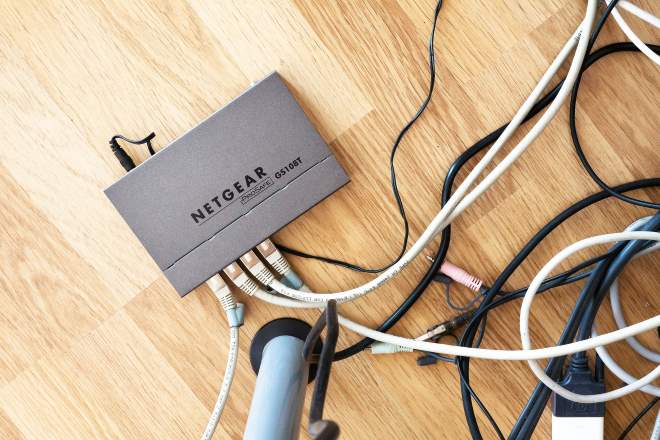Explore the Ultimate Guide for Seniors to Sell Their Cars Easily
As we age, our needs change, and this often includes our transportation requirements. For many seniors, selling a car that's no longer needed can be a daunting task. However, with the right approach and knowledge, the process can be straightforward and even rewarding. This comprehensive guide will walk you through the essential steps to help elderly individuals successfully sell their vehicles, from preparation to finalizing the sale.

What documents should seniors keep handy when selling their car?
Before listing your vehicle, it’s essential to organize all necessary paperwork. The primary document you’ll need is the vehicle title, which proves ownership and must be signed over to the buyer. If you still owe money on the car, contact your lender to understand the payoff process. Additionally, gather your vehicle registration, maintenance records, and any warranty documents. Maintenance records demonstrate that the car has been well cared for, which can increase buyer confidence and potentially boost your selling price. If you’ve had major repairs or upgrades, keep those receipts as well. Some states also require a bill of sale, odometer disclosure statement, or emissions test certificate, so check your local Department of Motor Vehicles requirements. Having everything ready in advance prevents delays and shows buyers you’re organized and trustworthy.
Which sites are best for seniors to post their car listing?
Several online platforms make it easy to reach potential buyers. Autotrader and Cars.com are well-established marketplaces that attract serious buyers and offer user-friendly interfaces. These sites allow you to create detailed listings with multiple photos and descriptions. Facebook Marketplace has become increasingly popular because it’s free and connects you with local buyers quickly. Craigslist remains another option for local sales, though it requires more caution regarding scams. CarGurus and Cargurus Instant Market Value tools help you understand fair pricing. If you prefer a simpler process, consider services like CarMax, Carvana, or Vroom, which provide instant offers and handle most paperwork, though they may offer slightly less than private sales. Each platform has its advantages, so consider your comfort level with technology, time availability, and desired selling price when choosing where to list.
How should seniors approach pricing their vehicle?
Setting the right price is crucial for attracting buyers without undervaluing your car. Start by researching your vehicle’s market value using resources like Kelley Blue Book, Edmunds, or NADA Guides. These tools consider your car’s year, make, model, mileage, condition, and location. Be honest about your vehicle’s condition—factors like scratches, mechanical issues, or worn interiors affect value. Check similar listings in your area to see what comparable vehicles are selling for. Generally, pricing slightly above your minimum acceptable price gives room for negotiation. Consider your car’s unique features, such as low mileage, recent maintenance, or upgraded technology, which can justify a higher asking price. If your vehicle has been in accidents or needs repairs, adjust your price accordingly. Remember that private sales typically yield higher returns than trade-ins or instant cash offers, but they require more time and effort.
When comparing different selling methods, understanding potential returns helps you make informed decisions. Below is a comparison of common selling options available to seniors:
| Selling Method | Provider/Platform | Estimated Return | Key Features |
|---|---|---|---|
| Private Sale | Autotrader, Facebook Marketplace | 85-100% of market value | Highest potential return, requires time and effort |
| Instant Cash Offer | CarMax, Carvana, Vroom | 70-85% of market value | Quick process, minimal paperwork, guaranteed sale |
| Dealership Trade-In | Local dealerships | 60-80% of market value | Convenient if buying another car, lower hassle |
| Consignment | Local consignment dealers | 75-90% of market value | Dealer handles sale, takes commission |
Prices, rates, or cost estimates mentioned in this article are based on the latest available information but may change over time. Independent research is advised before making financial decisions.
What are effective negotiation strategies for elderly sellers?
Negotiation doesn’t have to be stressful if you prepare properly. First, know your bottom line—the minimum price you’ll accept—and stick to it. When buyers make offers, respond calmly and professionally. If an offer is too low, politely counter with a price closer to your asking amount, explaining why your vehicle is worth more based on its condition, maintenance history, or features. Be prepared to justify your price with documentation like service records or recent repairs. Avoid getting emotionally attached to the sale; treat it as a business transaction. If a buyer tries pressure tactics or seems unreasonable, it’s okay to walk away. Consider bringing a trusted friend or family member to negotiations for support and a second opinion. Be flexible on minor points—if a buyer offers a fair price but wants to pick up the car a few days later, accommodating reasonable requests can close the deal. Remember that cash offers may warrant slightly lower prices than financed purchases due to immediate payment.
How can seniors ensure a safe and secure transaction?
Safety should be your top priority throughout the selling process. Always meet potential buyers in public places during daylight hours, such as bank parking lots or busy shopping centers. Bring someone with you if possible. Never allow test drives without accompanying the buyer, and ask to see their driver’s license first. For payment, accept cashier’s checks, money orders, or electronic transfers rather than personal checks, which can bounce. If accepting cash, meet at a bank where you can verify bills immediately. Be wary of buyers who offer more than your asking price or request unusual payment methods—these are common scam tactics. Never share sensitive personal information beyond what’s necessary for the sale. When completing the transaction, sign the title properly and provide a bill of sale with both parties’ signatures. Remove your license plates and cancel your insurance only after the sale is finalized. Report the sale to your state’s DMV to avoid liability for tickets or accidents after the transfer. Trust your instincts—if something feels wrong, it probably is.
Final Thoughts on Selling Your Vehicle
Selling your car as a senior doesn’t have to be complicated or stressful. By organizing your documents, choosing the right platform, pricing competitively, negotiating confidently, and prioritizing safety, you can complete the transaction smoothly and successfully. Take your time, do your research, and don’t hesitate to ask family members or friends for assistance if needed. Whether you choose a private sale for maximum value or an instant offer service for convenience, understanding your options empowers you to make the best decision for your situation. With proper preparation and attention to detail, you’ll find the right buyer and complete the sale with confidence.




